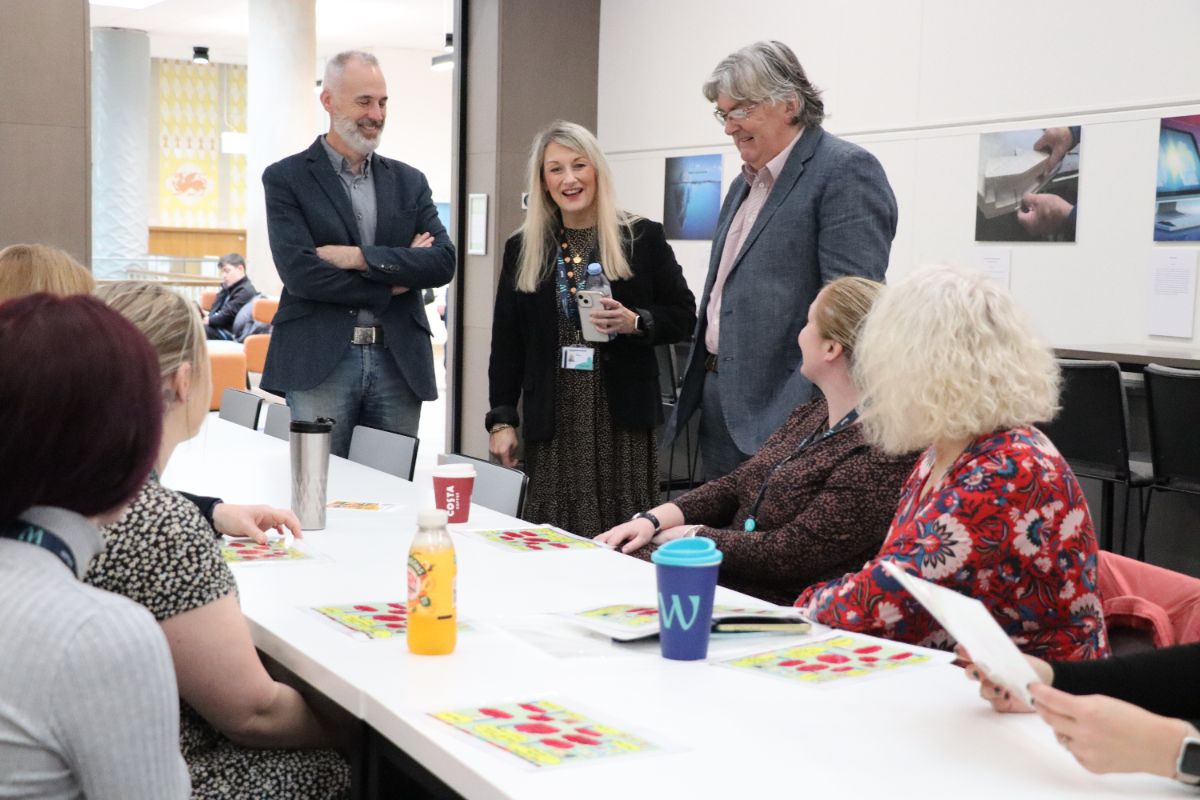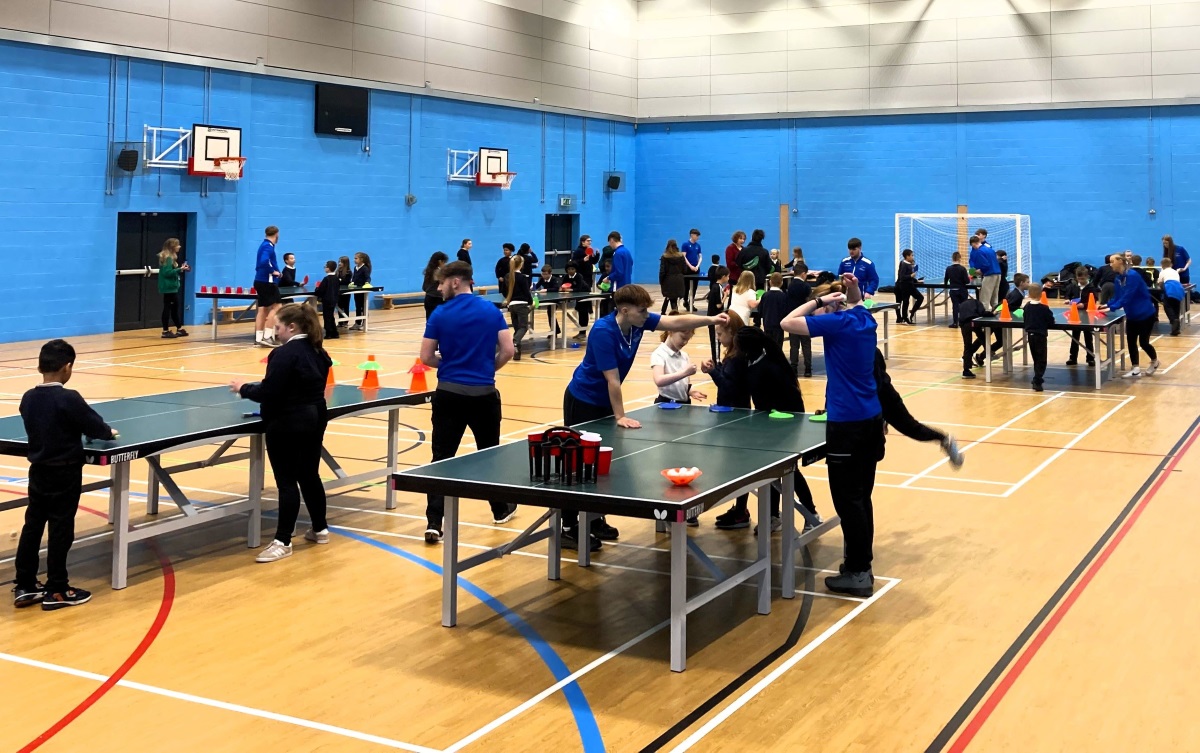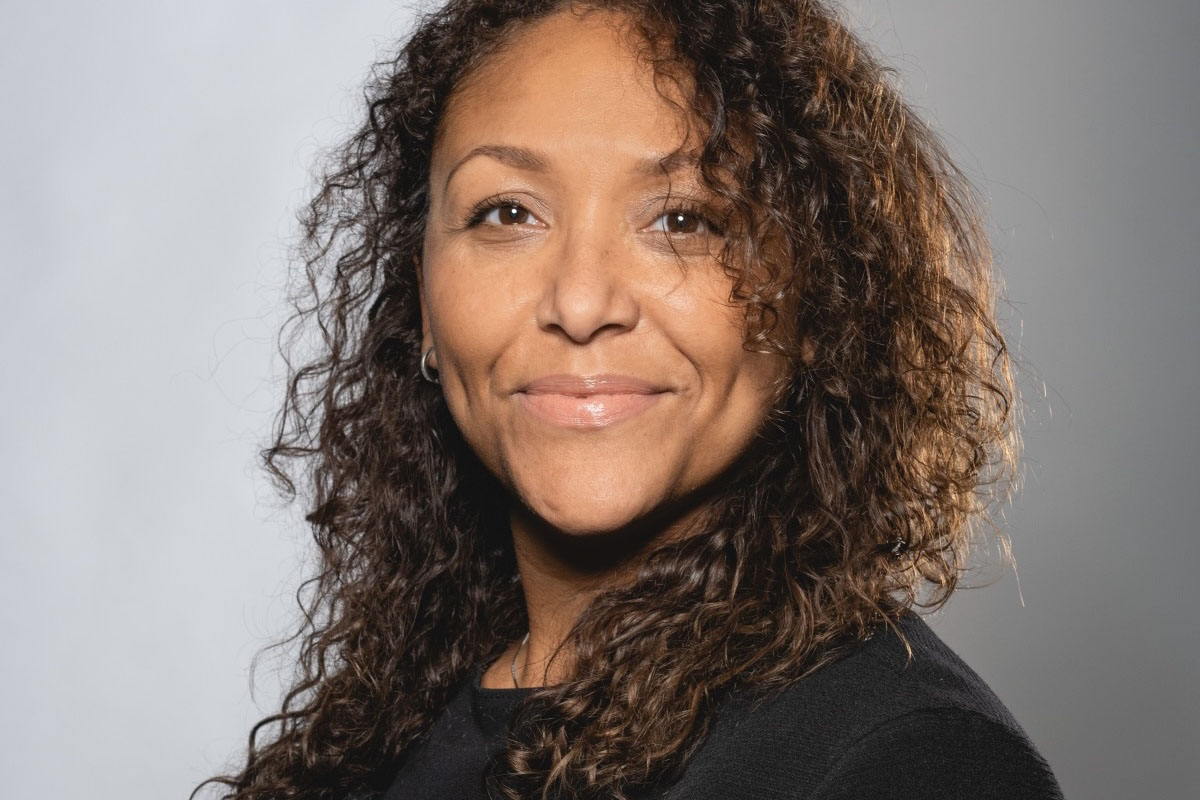Welsh language opportunities showcased during Coleg Cymraeg Cenedlaethol visit

The countless opportunities for PrifysgolWrecsam/Wrexham University students and staff to speak the Welsh language and be involved with Welsh-medium education was showcased during a visit from Coleg Cymraeg Cenedlaethol.
The University welcomed Dr Aled Eirug, Chairman; and Dr Dylan Phillips, Senior Academic Manager, both from Coleg Cymraeg Cenedlaethol – the organisation that works with universities and colleges to develop and promote Welsh medium and bilingual post-16 education in Wales.
The visit provided an opportunity for the institution to highlight its work in providing students and staff the chance to use the Welsh language and celebrate their culture and heritage, while studying and working at Wrexham University.
During the day, Dr Eirug and Dr Phillips visited various teams throughout the university to gain an understanding of how Welsh medium provision is increasing, particularly since theinstitution’s Welsh Language Academic Strategy and Action Plan was approved towards the end of last year.
The first stop of their visit was to ‘Coffi a Chlonc’ – a monthly coffee morning held on campus to enable staff to meet and practice their Welsh language skills in a relaxed and friendly environment.
Later on in the day, Dr Eirug and Dr Phillips visited the new Health and Education Innovation Quarter (HEIQ) to speak to Nursing and Allied Health students and staff about interprofessional working and the use of the Welsh language in healthcare settings.
They also met with Speech and Language Therapy students to hear about how the degree course became the first at the University to offer bilingual study options from the beginning of this academic year, after Welsh-speaking lecturer, Ffion Roberts was recruited to deliver the subject.
Elen Mai Nefydd, Head of Welsh Medium Academic Development at PrifysgolWrecsam/Wrexham University, said:
“It was our absolute pleasure to welcome Dr Aled Eirugand Dr Dylan PhillipsfromColeg Cymraeg Cenedlaethol to see the excellent progress we are making in relation to Welsh medium provision and opportunities for both students and colleagues.
“Their visit demonstrates our commitment as a university to work in partnership with Coleg Cymraeg Cenedlaethol.
“Coffi a Chlonc was a wonderful way of demonstrating how supportive the University is as a workplace in terms of encouraging and enabling staff to learn and speak Welsh in a friendly and open environment.
“While, it was also beneficial for Dr Eirug and Dr Phillips to meet with students on our Nursing and Allied Health courses to hear how they’re able to speak their first language and how they’re aware of the benefits of speaking a patients’ first language, while being cared for in hospital and other health settings. A huge thank you to Coleg Cymraeg Cenedlaethol for their time with us.”
Rhodd Hughes, a second-year Physiotherapy student, said:
“There is so much great work going on at the University around the Welsh language.
“For me, while I was on placement last year in Ysbyty Gwynedd, the majority of patients were Welsh-speakers, so I really saw the importance of being able to communicate to patients in their mother tongue. When people are going through a tough time, being able to converse in the language that they are most comfortable speaking really makes a difference.”
Dr Eirug added:
“It was fantastic to visit students and colleagues at PrifysgolWrecsam/Wrexham University to hear all about the progress they’re making in relation to Welsh medium provision and see the many tangible benefits of that.
“In particular, it was great to speak with Nursing and Allied Health students to understand how this provision is benefiting them, and how the university is responding to the needs of the local health board – that’s extremely important.
“Seeing this work in action at Wrexham was brilliant and useful for us to ensure that we at Coleg Cymraeg Cenedlaethol are supporting the institution in empowering students to give them the confidence to use the Welsh language when training, studying and working.”











Responses